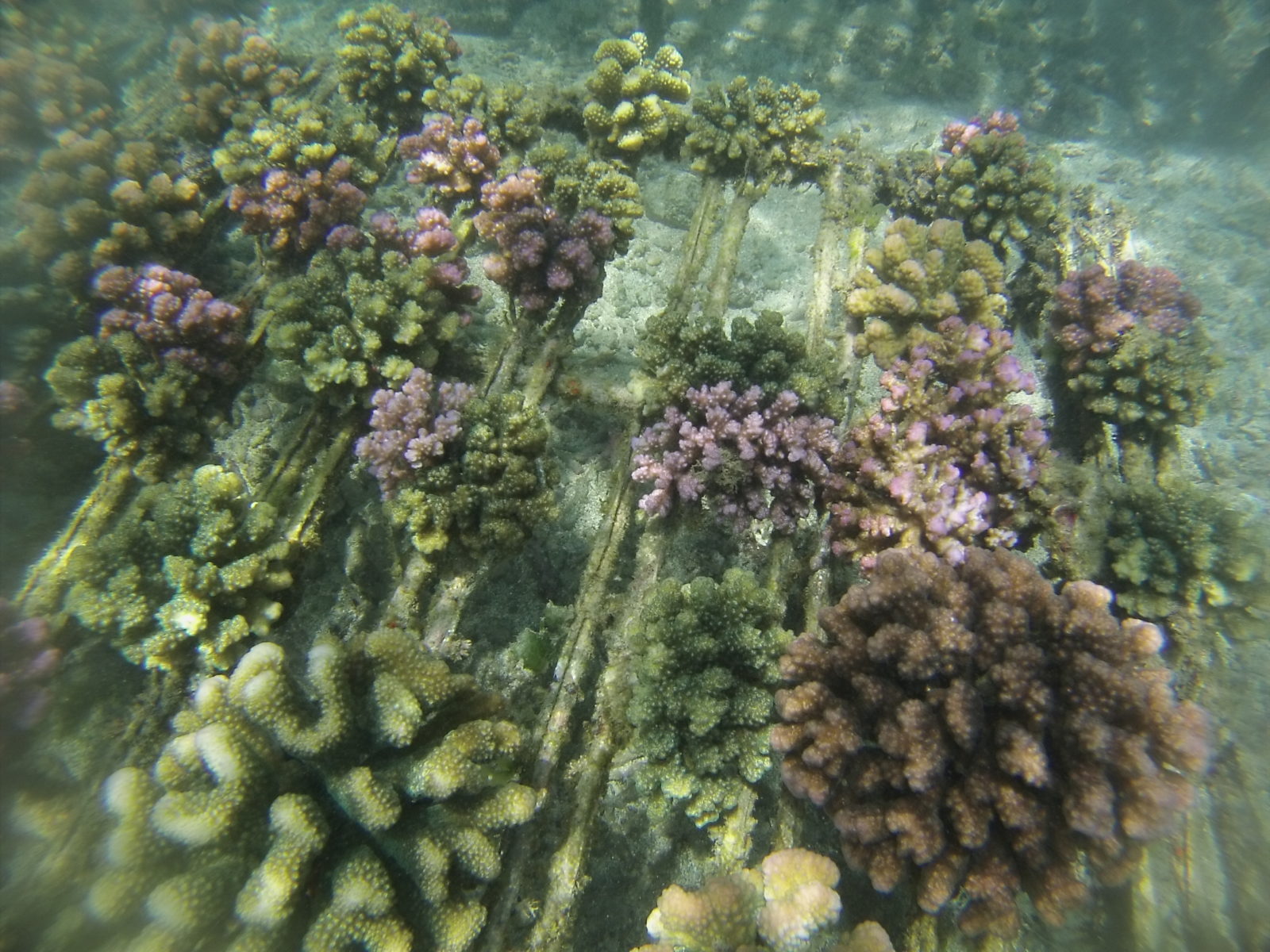When we talk about our operations as a coral farm, many people think in terms of traditional farming. Sowing seeds, planting crop, harvesting, and the change of seasons. Not all that applies to coral farming. Natural propagation of coral happens when the coral larvae floats through the ocean until it finds a suitable place to settle. We can not use that method in any commercial scale as it is random and unpredictable. We use the corals unique ability to grow. What we consider “a coral” is actual a colony of multiple animals that live within the colony. So if a colony is broken in half, both halfs have the potential to keep growing independently. A coral needs to be rooted on a reef to flourish but here is where our specialists at the coral farm come into play. We take a good sized mature coral colony which we call “mother coral” and break it in multiple small pieces. These smaller sections are secured with a special underwater glue onto a stone base plate. Those get secured onto a table that is submerged in the lagoon of our ocean based farm. The coastal waters of Bali are owned by the public and the government issues leases to companies like ours that went through a rigorous screening and approval process. So in a sense the process is similar to a farmer that cultivates fields and pastures leased from someone else.
Coral comes in many shape and forms. Some stone coral takes hundreds of years to grow to a large size, while other species can grow relatively fast. Some coral formations live to grow thousands of years “old”. Not all species survive in captive environments, not all can be relocated. We had a few decades of trial and error to fine tune our craft of ocean based coral farming, and found the best species to grow beautiful resilient coral for use in commercial aquariums and private ornamental fish tanks. This process of fracturing allows to produce consistent results, and to maintain a large selection of different species and colors. So our farming does not require plowing of fields but rather meticulous cleaning of our underwater equipment from sediment and algae, monitoring coral for its progress and keeping our precious crop in top shape. So we have to regularly tend to the farm, which has its own sets of challenges. Instead of tractors and harvesters, we use boats and diving equipment to look after our aquaculture assets. Instead of excessive rain and famine, we have to worry about tides and storms. A farmer cultivates the soil, we monitor the water quality. A lot of things are different in an ocean based farming endeavor when compared to traditional farming. But one thing is the same. We have to know our environment and understand the crop we grow. We need to form a symbiotic alliance with nature to be successful. We are a part of nature in our efforts. We don’t rule it, we don’t own it. We are a custodian to be allowed to play a temporary role in shaping nature to our benefit. Fracturing coral is not an act of destruction. Quite the opposite – It is a tool to propagate precious natural resources. Its a way to be environmentally sensitive and prevent further harvesting of already endangered wild species. We are creating something good and protecting it it in the long term by purposefully breaking it apart.


